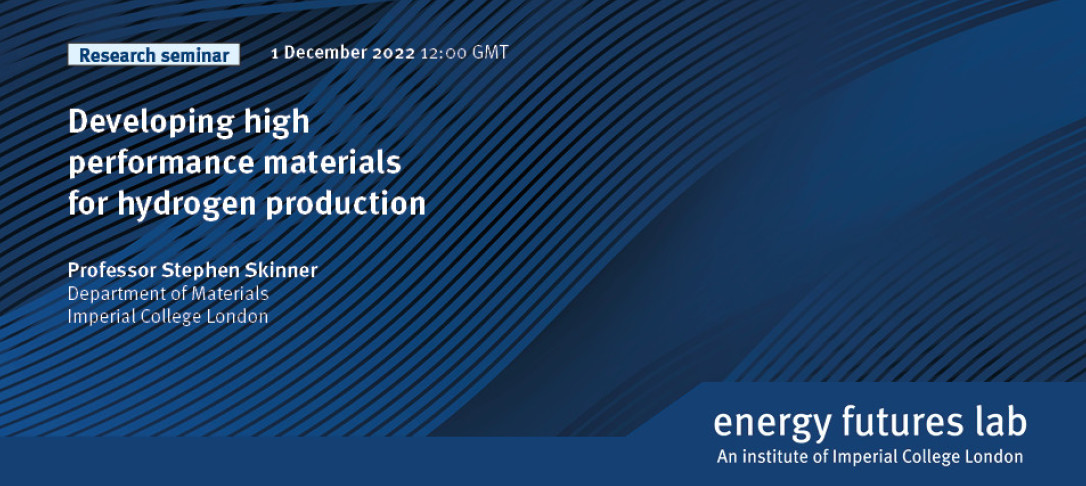
Developing high performance materials for hydrogen production
As there is increasing national and international interest in developing green routes to produce hydrogen fuels, it is essential that we explore new materials solutions. An effective method to produce clean hydrogen is through electrolysis at high temperatures, with ceramic membranes used as the central component of an electrochemical reactor operating at temperatures in the range of 400-700oC. Two main options exist, through the use of either oxide ion or proton conducting materials as solid oxide cells. For each device type it is necessary to develop compatible air and fuel electrodes, as well as effective ion conducting membranes. In addition to the materials development, there is the need to engineer the microstructure of the electrodes, ensuring effective reactions, and translating phenomena from atomic processes, through surface chemistry to device performance. To unambiguously determine the nature of the charge carrier we utilize isotopic labels including 18O2 and D2O in combination with secondary ion mass spectrometry and impedance spectroscopy. These experimental approaches are supported by computational methods, investigating key phenomena, including charge transfer processes. In this presentation an overview of our recent developments in the understanding of key transport processes will be discussed, with additional detail provided on the background of the experimental approaches used.
Biography:
Professor Stephen Skinner holds the Ceres/RAEng Research Chair in Electrochemical Devices for net zero carbon. His research focuses on the development of new ion conducting materials for electrochemical technologies including electrolysers, fuel cells & batteries. His work links the structure and chemistry of materials under operating conditions using a suite of advanced tools including diffraction, microscopy and spectroscopy combined with isotopic labelling.
About Energy Futures Lab
Energy Futures Lab is one of seven Global Institutes at Imperial College London. The institute was established to address global energy challenges by identifying and leading new opportunities to serve industry, government and society at large through high quality research, evidence and advocacy for positive change. The institute aims to promote energy innovation and advance systemic solutions for a sustainable energy future by bringing together the science, engineering and policy expertise at Imperial and fostering collaboration with a wide variety of external partners.